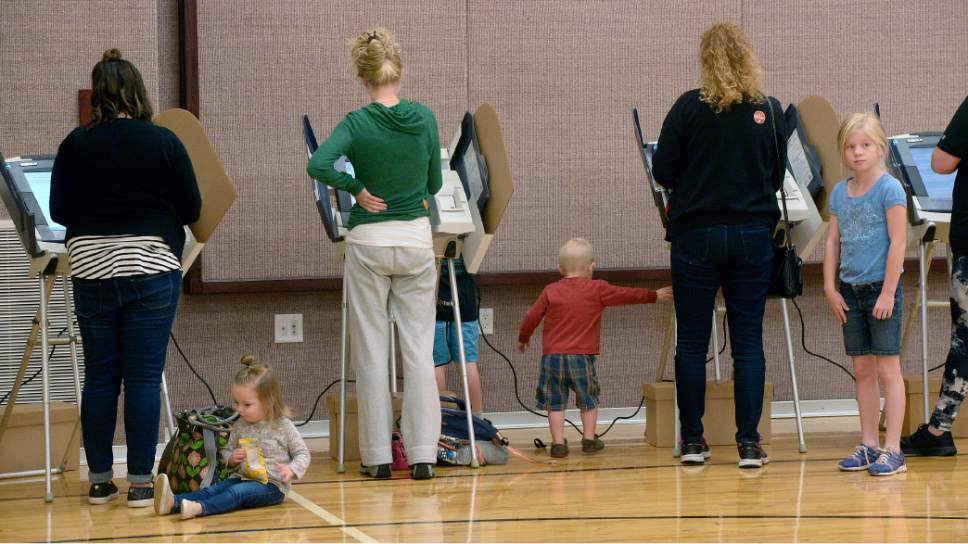This is an archived article that was published on sltrib.com in 2017, and information in the article may be outdated. It is provided only for personal research purposes and may not be reprinted.
Legislators and county clerks wrestled Wednesday over whether to pursue "ranked-choice voting," sometimes called instant runoff voting, to help ensure that election winners are actually supported by a majority of voters.
In such a system, voters rank their first, second, third, etc. choices. If no one achieves a majority initially, the lowest-vote-receiving candidate would be eliminated. Supporters of that eliminated candidate would have votes shifted to their second choice. The process would repeat until someone wins a majority.
Rep. Rebecca Chavez-Houck, D-Salt Lake City, has for years pushed bills to allow this type of voting. Legislation on the topic passed the House this year, but it died in the Senate after the Utah Republican Party endorsed the idea to help resolve worries that multicandidate primaries could lead to winners who achieve small pluralities.
Rep. Marc Roberts, R-Salem, said that in a primary with four candidates, someone now can win with about 25 percent of the vote. Ranked-choice voting, he said, "is the best solution to handle that" and is far cheaper than conducting runoff elections sought by some.
Chavez-Houck and Roberts told that Government Operations Interim Committee that advances in technology make such systems easier to use. The committee agreed to open a file to draft legislation to potentially allow pilot programs or other tests of the system.
But county clerks from around the state opposed the idea.
Weber County Clerk Ricky Hatch, representing other clerks statewide, said it would lengthen ballots — increasing printing and mailing costs so much that it could kill the by-mail balloting used by 21 of the state's 29 counties.
He argued that it would also create a "fake majority" because voters often do not use all of their possible choices — and perhaps vote for only one candidate. He said that may mean the winner often still does not achieve a majority of all votes initially cast.
Hatch said clerks prefer to allow whoever achieves a plurality in current voting systems to be declared the winner, but would prefer actual runoff elections over the ranked-choice system.
Chavez-Houck said she hopes to work with clerks to find ways to overcome their objections and at least allow some tests of the system.
Meanwhile, lawmakers are considering other key changes to Utah election law and operations — including requiring county clerks to conduct all elections (including for cities), using the same voting method (such as by mail) and using the same equipment.
Mark Thomas, state elections director for Lt. Gov. Spencer Cox, asked the committee to consider each of those changes, and it formally opened a file to draft such legislation.
These discussions arose as the state and counties are seeking to replace old voting equipment that is near the end of its lifespan. Proposed changes would affect what they buy and how much they may need to spend. The state and counties have used the same equipment for decades, which makes it easier to produce election-night results.
Thomas notes that 21 of Utah's 29 counties conducted elections mostly by mail last year, and he expects that more may choose to go that route because it tends to save money and increase voter participation.
He said that would require different equipment — such as more scanners to read by-mail ballots.
If all counties used by-mail systems, he estimates it may cost $10 million statewide — about a third of what it cost to replace equipment the last time, in 2005.
Thomas also proposed considering requiring county clerks to conduct all elections, including for cities and special districts. They are experts in election law and operations, he said, while city recorders and others are involved in elections less frequently.
Such a step may ease responsibilities for cities and others, he said, and make better use of new election equipment.
Thomas also urged consideration of requiring use of the same equipment statewide to save money, ease training, and more easily allow results to be available on election night.
He also urged the state to fund part of the cost of replacing voting machines to help encourage selection of the same systems statewide.



